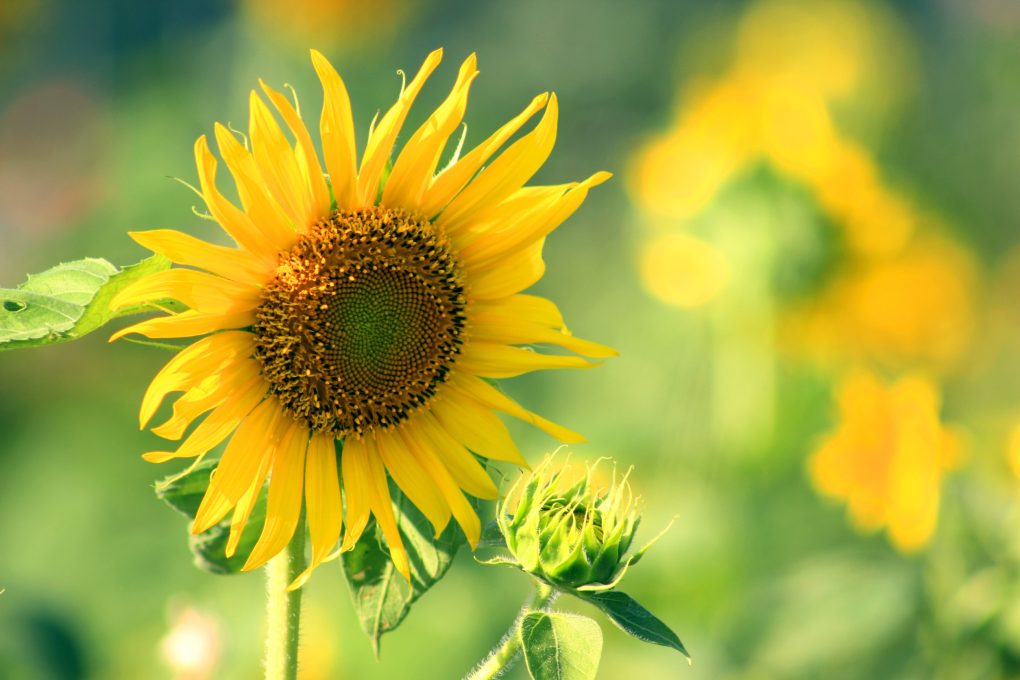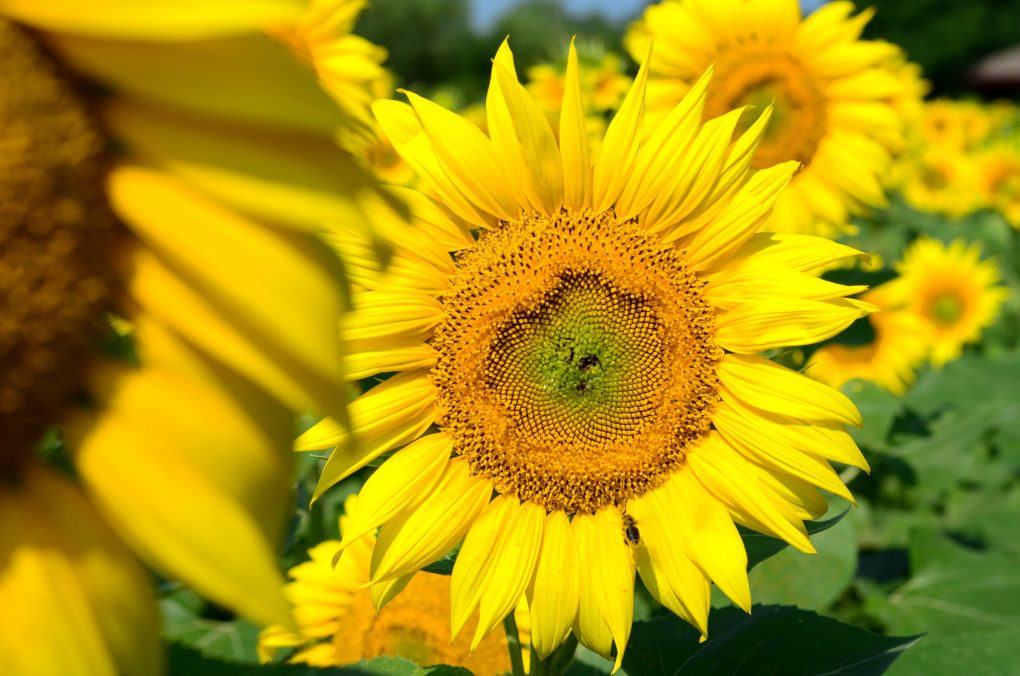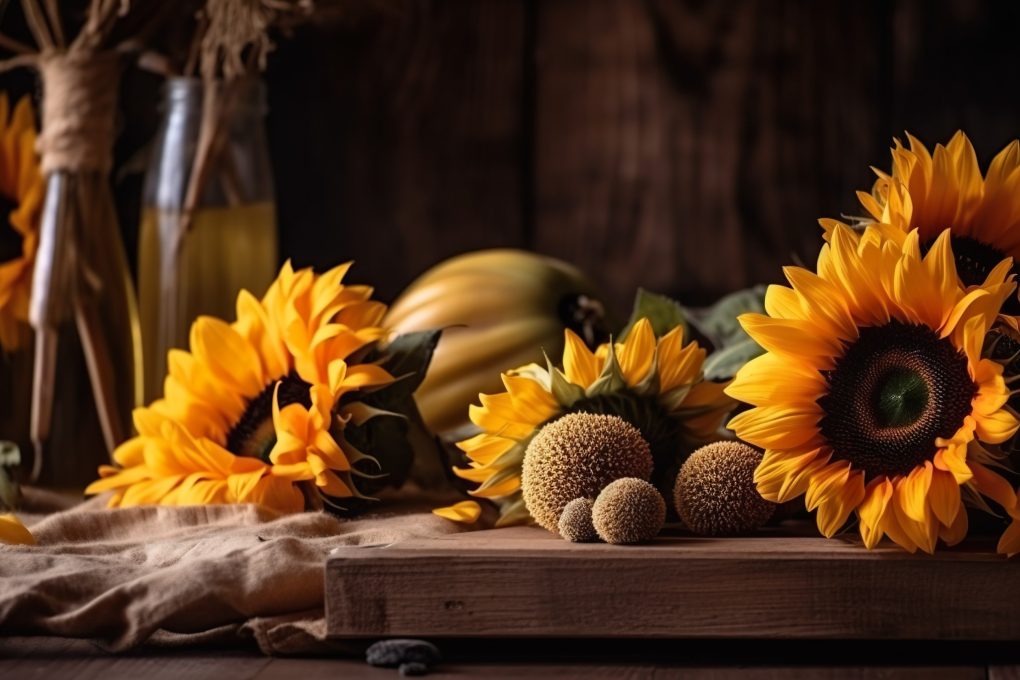What a Sunflower Represents: Symbolism and Meaning Explained
Sunflowers are one of the most recognizable flowers in the world, known for their vibrant yellow petals and large size. Sunflowers are often associated with positive and uplifting meanings. Some of the most common meanings associated with sunflowers include:

- Adoration: Sunflowers are often seen as a symbol of admiration, loyalty, and devotion. They are frequently given as gifts to express love, gratitude, or appreciation.
- Positivity: Sunflowers are known for their bright and sunny appearance, which makes them a popular symbol of optimism and positivity. They can remind you to stay positive and focus on the good things in life.
- Strength: Sunflowers have a strong and sturdy stem, which can be seen as a symbol of strength and resilience. They can be a reminder to stay strong and persevere through difficult times.
- Nourishment: Sunflowers are an important source of food and nourishment for humans and wildlife. They can be a symbol of abundance, growth, and sustenance.
- Spiritual significance: Sunflowers have been used in various spiritual traditions throughout history. They can represent the sun, the cycle of life and death, or the connection between the physical and spiritual worlds.
Table of Contents
Sunflowers in Art and Literature
Sunflowers have been a popular subject in art and literature for centuries, with their bright petals and towering height capturing the imaginations of many artists and writers. One of the most famous depictions of sunflowers is Vincent van Gogh’s series of paintings of flowers, which he created in the late 1880s.
Van Gogh’s sunflowers are known for their bold, vibrant colors and thick, textured brushstrokes. They are usually seen as symbols of happiness and hope and have become some of the world’s most recognizable works of art.
But van Gogh is not the only artist inspired by sunflowers. Other famous depictions of the flowers include Claude Monet’s “Sunflowers” series and Gustav Klimt’s “Sunflower” painting.
Sunflowers have also appeared in literature, often symbolizing hope, loyalty, and devotion. For example, in William Faulkner’s “The Sound and the Fury,” Quentin Compson compares his sister Caddy to a sunflower, saying that she is “the only bright spot in a world of dark and dismal things.”
Similarly, in “The Wonderful Wizard of Oz,” L. Frank Baum describes the sunflower as “the most beautiful and graceful of all the flowers in the garden” and uses it to symbolize the Scarecrow’s intelligence and resourcefulness.
Sunflowers in Science

Botany
Botany is the scientific study of plants, including their structure, function, growth, reproduction, and classification. It encompasses various fields, including genetics, ecology, physiology, anatomy, and taxonomy.
Botanists study plants at various levels, from the molecular and cellular levels to the level of whole organisms and ecosystems. They may investigate the role of plants in the environment, their interactions with other organisms, their use in agriculture and medicine, and their evolution and diversity. Botany is a required field of study for understanding the natural world and addressing environmental issues.
Agriculture
Sunflowers have significant importance in agriculture due to their multiple uses, confirmed by the University of Missouri. They are mainly grown for oilseed production, with the oil extracted from the seeds used for cooking, soap making, and as a fuel source. Sunflowers are also grown as an animal feed crop, with the stalks and leaves used as forage. Additionally, sunflowers are grown for ornamental purposes and as a crop in crop rotations to improve soil health.
Biofuel Production
Sunflowers are used as a source of biofuel production. Sunflower oil is used as feedstock to produce biodiesel, a renewable and environmentally friendly alternative to conventional diesel fuel. The sunflower plant can also be used as a source of biofuel in the form of ethanol. Ethanol is produced by fermenting the sugars in the sunflower plant and is commonly used as a gasoline additive to reduce emissions.
Phytoremediation
Phytoremediation is a process that uses plants to remove pollutants from soil, water, or air. Sunflowers are known for absorbing heavy metals and other toxins from contaminated soil. They have been used to remediate sites contaminated with lead, arsenic, uranium, and other heavy metals. The process works by the roots of the sunflowers absorbing the pollutants and storing them in the plant’s tissues.
Once the sunflowers have been harvested, the plant material can be safely disposed of or processed to extract the contaminants for safe disposal. Phytoremediation is an environmentally friendly and cost-effective way of cleaning up contaminated sites, and sunflowers are a particularly effective plant for this purpose.
Medical Research
Medical research has also shown the potential benefits of sunflowers. For example, analysis has indicated that consuming sunflower seeds can lower cholesterol levels and decrease the likelihood of heart disease. In addition, sunflower oil, which is high in vitamin E, has been utilized in skincare products due to its anti-inflammatory properties.
Additionally, some research suggests that extracts from sunflower leaves and flowers may have antioxidant and antimicrobial properties, potentially useful for treating certain health conditions. However, more research is needed to fully understand the potential benefits and risks of using sunflowers for medical purposes.
Sunflowers in Kitchen

- Sunflower oil: Sunflower oil is a popular cooking oil thanks to its mild flavor and high smoke point. It can be used for sautéing, frying, baking, and more.
- Sunflower seeds: Based on experience, sunflower seeds are a nutritious and delicious snack and can be eaten raw or roasted. They can also be used in various recipes, including salads, granolas, and baked goods.
- Sunflower petals: Sunflower petals can add color and flavor to salads, soups, and other dishes. They have a slightly sweet, slightly bitter taste and a crunchy texture.
- Sunflower butter: For individuals with nut allergies, sunflower butter is a perfect alternative to peanut butter and can be utilized similarly.
- Sunflower sprouts: Sunflower sprouts are a tasty and nutritious addition to salads and sandwiches and can be grown easily at home.
